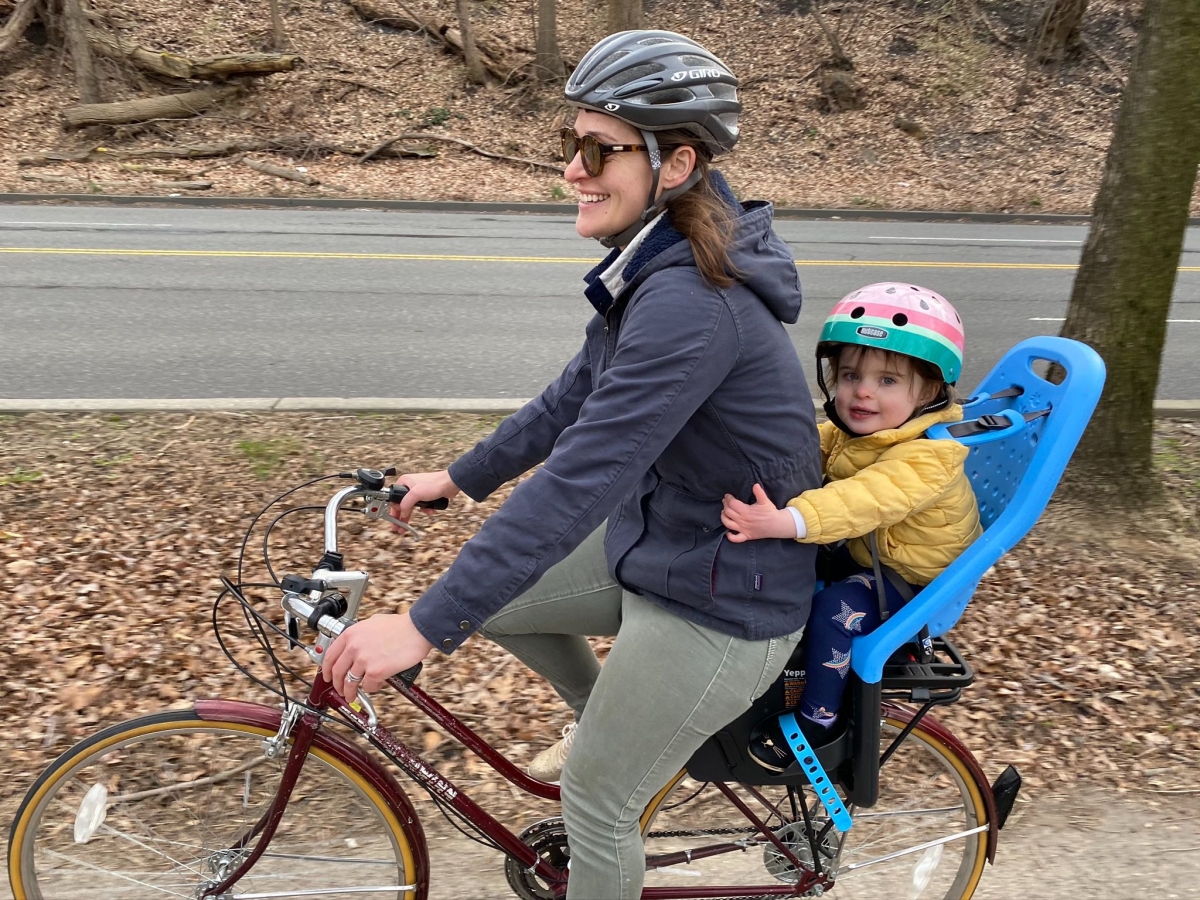
The City of Philadelphia closed a major road to cars to create more space for people to walk and bike at a socially safe distance during the covid-19 pandemic.
For many bicycle and pedestrian advocates, the covid-19 pandemic has confirmed what many of us have been saying for years: walking and bicycling are critical modes of transportation that deserve more attention and funding. Walking, biking, and wheeling are independent and resilient transportation modes that are healthy for mind, body, and planet. The coronavirus response has left schools closed, businesses shuttered, and public transportation ridership has plummeted, yet it has shined a spotlight on the importance of walking and bicycling in communities across the country.
- Meals are being delivered by bike in record numbers as people observe local regulations preventing dining-in.
- Bicycling rates are up in cities across the country as people shift modes from public transit to biking and as people bike to maintain physical and mental health while gyms and fitness studio close.
- Nationwide, trail usage is up over 200% compared to this time last year.
- Even in some cities and states that have closed essential businesses, bike shops and legacy bikeshare systems are deemed essential. Bikeshare systems are seeing huge surges in ridership.
- Air pollution is down in many locations around the country due to reduced levels of driving.
These statistics affirm reasons why many of us use active travel modes: walking, biking, and wheeling provide a sense of independence, an opportunity to be healthy, reduce our impact on the planet, and are reliable ways to get where we need to go. Here are suggestions for how to work with your community to make biking safer and more convenient now, during the coronavirus pandemic, and into the future.
Make Streets Car-Free
- Ask local leaders to make key roads car-free so people can walk, bike, and be physically active outdoors while maintaining a safe social distance (at least 6 feet) like in Philadelphia, where advocates want the city to close additional streets so that more Philadelphians can benefit from safer places to walk and bike, as well as in Denver, and San Francisco.
- Take photos, collect stories, and count the number of people walking and wheeling on closed streets to build the case for Open Streets or ciclovías on a recurring basis.
Use Pop-Ups to Protect People and Show Potential
- Work with city leaders to install temporary connected bikeways, like in Bogotá, Colombia and New York City, in order to facilitate safe mobility and promote social distancing.
- Take photos and collect data on the number of people using these facilities to advocate to make them permanent following the global pandemic.
Share That Bike Shops Are Essential Businesses
- Educate your elected officials about why bike shops are essential businesses that must remain open using these tools and talking points from the League of American Bicyclists.
Show Up for Mass Transit
- While we observe necessary social distance precautions, ridership is down for public transportation agencies all across the country. Yet, strong public transportation networks are the backbone of most urban transportation systems. When we emerge from this public health crisis, we will need robust public transit to keep getting us around our communities. We are pleased that the Coronavirus bills being debated on Capitol Hill include funding for public transportation agencies, and we encourage active transportation advocates to show support for public transit at the state and local levels.
School’s Closed, But Kids Need Safe Routes When They Reopen
- Read our blog post from earlier this week for ideas about how to keep Safe Routes to School efforts rolling forward even when school is closed. Take advantage of this downtime to plan for next year, recruit parents as Walking School Bus and Bike Train leaders, host virtual encouragement activities to keep families enthusiastic about walking and biking, and collect stories of impact from kids and teachers about their favorite parts of your Safe Routes to School program and what they miss most about it while schools are closed.
How are you using this unique moment in history to advocate for safer places to walk, bike, and roll? Email us your stories and ideas at info@saferoutespartnership.org, and we will update this blog to include your submissions.
At the Safe Routes Partnership, we also understand that advocates may feel uncomfortable centering our issues right now. We will have a follow-up blog post with resources and ideas for how bicycle, pedestrian, and Safe Routes to School advocates can show up as allies for people and other issues directly impacted by the covid-19 pandemic.
